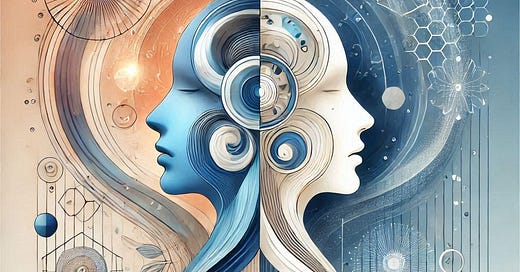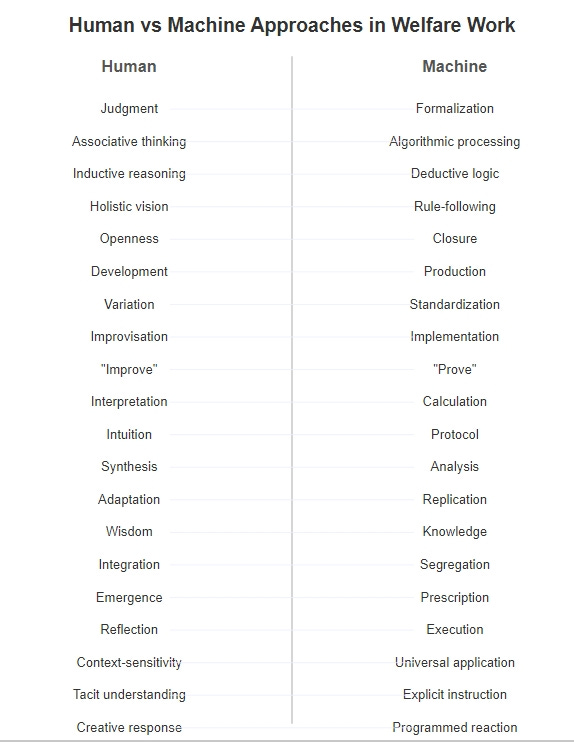When exploring the relationship between human and machine in welfare services, we encounter a fundamental ontological1 divide. The "machine" here isn't just technological systems - it encompasses our entire formalized societal apparatus, the complex network of institutions, regulations, and standardized procedures that structure modern society.
This tension manifests in numerous opposing pairs that characterize how humans and societal machinery approach reality:
Learning to recognize these differences not as problems to be solved, but as essential polarities to be managed, helps us better lead and develop both Human & Machine approaches in welfare services.
A short reflection on the polarity between Human & Machine - share your thoughts in a comment below.
Ontology refers to the study of the nature of reality or being. When we speak of an "ontological divide," we're talking about fundamental differences in the very nature or mode of existence between two things - in this case, between human ways of understanding and working versus mechanical or systematic approaches. It's about how humans and machines fundamentally differ in their way of existing in and engaging with the world.






